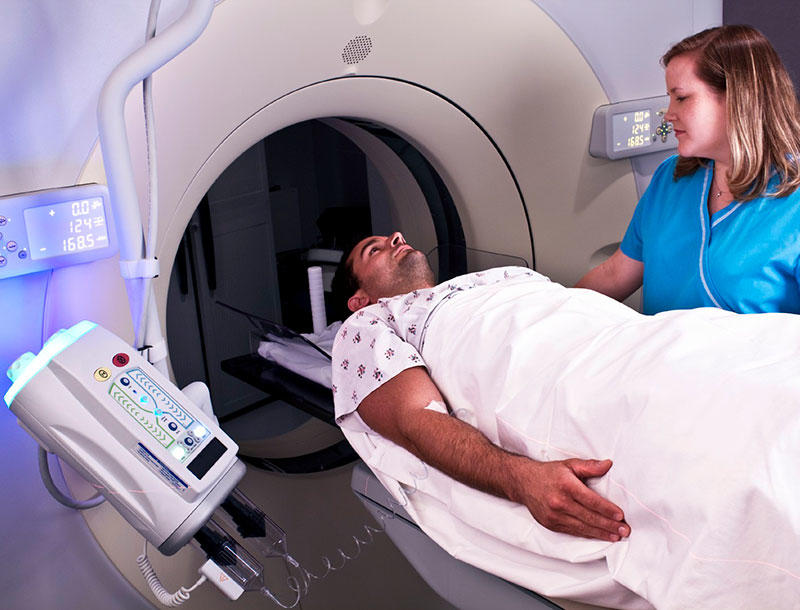Diagnostic Radiation Dosimetry
DCEG investigators in the Radiation Epidemiology Branch have been developing methods to estimate organ doses to pediatric and adolescent patients undergoing computed tomography (CT) scans. For this effort, they developed cutting edge age- and body size-dependent computational human phantoms and coupled them with a simulated x-ray beam from a reference CT scanner using a Monte Carlo transport code. They validated the resulting simulated organ doses for illustrative CT scans using dose measurements based on physical human phantoms combined with radiation dosimeters. The investigators combined these results with a graphical user interface and user-friendly computer software, calling the resulting program the National Cancer Institute dosimetry system for Computed Tomography (NCICT).
The NCICT has been used in major epidemiological investigations including assessment of subsequent cancer risk in the UK-NCI cohort study, European Pediatric CT Scan study (EPI-CT), and the National Lung Screening Trial. The NCICT program is being shared with the radiological community for research purposes as part of the NCIDose collection.
For more information, contact Dr. Choonsik Lee.
